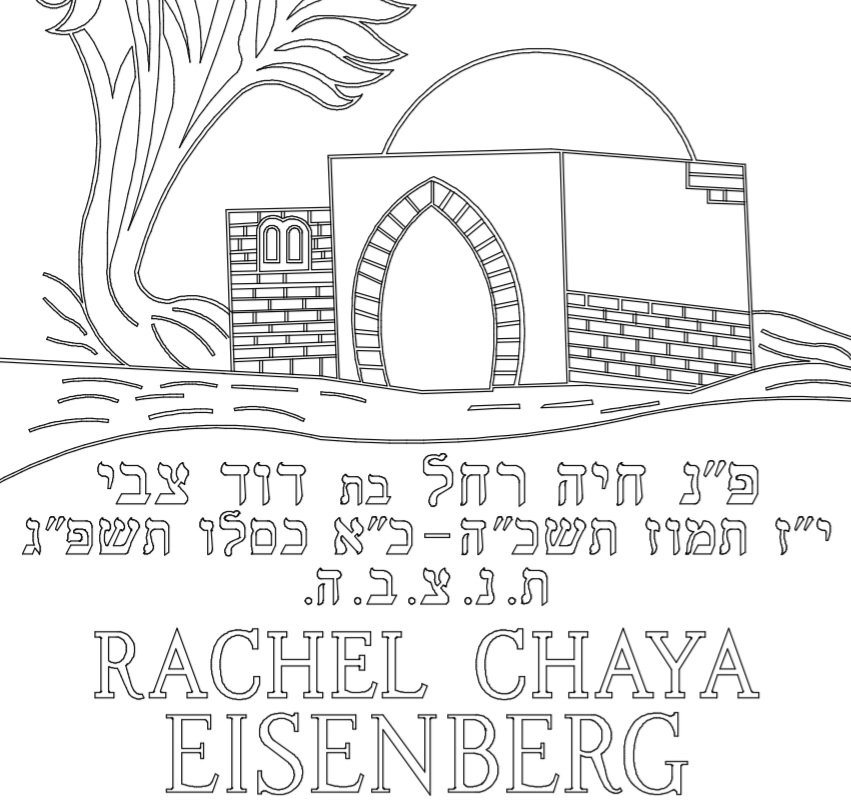Along the emotional roller-coaster ride of פַּרָשַׁת וַיִּשְׁלַח, we learn of the passing of Rachel Imeinu. The Torah describes how she was buried, not with the rest of the אָבוֹת and אִמָהוֹת in the מְעָרַת הַמַּכְפֵּלָה, but on the roadside in בֵּית לֶחֶם.
Why wasn’t Rachel given the honor of being buried with the rest of our holy mothers? Though there are a couple of answers to this question, I want to share the one which our Sages of blessed memory teach us that Yaakov offered to Yosef when he was bothered by the same question at the end of סֵפֶר בְּרֵאשִׁית.
Yaakov confessed that he was forced to bury Rachel on the roadside so that when the B’nei Yisrael would be sent out of Eretz Yisrael by Nevuzaradan of Bavel, Rachel would emerge from her grave to cry for her children, so that in the merit of her tears alone, “her children” would eventually return home (Eichah Rabbah, Entry 2:4).
What is the special merit of Rachel over that of any of our forefathers? What happened to זְכוּת אָבוֹת (merit of the Fathers)? And why is Rachel the mother to represent Am Yisrael? After all, she was only the mother of two of Yaakov’s sons, the mother of a total of only 3 out of the 12 tribes. What is the hidden power of Rachel’s tears?
The Sages state that זְכוּת אָבוֹת has depleted (Shabbos 11A). However, the שְׂפַת אֶמֶת (Pesach, 5642) writes that despite that, זְכוּת אִמָהוֹת (merit of the Mothers) never runs out. Why not? Because fatherhood represents דִין, strict judgment. That means that their merit has limits. There is a point at which we no longer deserve it and it can no longer be justified. Our Sages teach that, of course, the אָבוֹת would try to appeal on our behalf, but it will be of no use.
However, motherhood symbolizes רַחַמִים, mercy, even when it is undeserved. When a mother cries, she does not care whether her child has rebelled or not. The cry does not come from a place of reason, but from the most raw and yet the most profound emotion. And there is no limit to her cries. One cannot reason with her pain and explain it away. Her prayers might be rejected, but her tears cannot be turned away. That is perhaps why our Sages also teach that although the gates of Tefilah have indeed been locked, the gates of tears remain wide open (Brachos 32B). That is the power of the endless supply of זְכוּת אִמָהוֹת.
Why is Rachel the mother for this mission, seeing that she only represents a quarter of the twelve tribes? Because she was emotionally invested in all of the children of Yisrael. She sacrificed herself and her marriage to Yaakov for her sister so that they could all be born. She watched them grow up while she was left barren for years. And perhaps most importantly, she saw each child as though it could be her own. A mother will always cry for her children, but a holy mother will be able to see her sister’s children as her own and cry for them too.
And that was the story of my mother, Chaya Rachel. She cried for the suffering of all of the children of Yisrael as though they were her own. (I can say that because I watched her lose a child of her own.) She cared deeply about every Jewish child.
Now is certainly not the time to explain away the source of our pain or to count our merits. Now is not the time to Daven with just our lips. Now is the time to cry relentlessly for our brothers and sisters and, as my mother always said, to “storm the gates of heaven.” In the endless merit of our tears, we should unlock that the זְכוּת אִמָהוֹת which we need and finally experience the Geulah with the coming of Moshiach, Bimheirah BiYomeinu!

